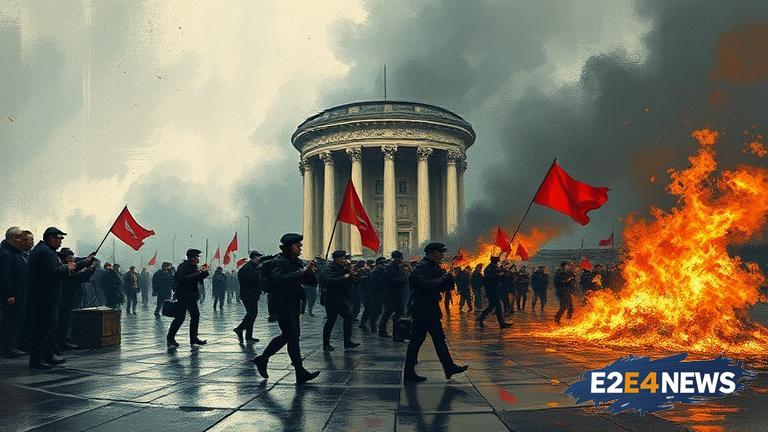The armed campaign in Ireland, which lasted for decades, has been a topic of discussion and reflection in recent years. Gerry Adams, a prominent figure in the Irish republican movement, has expressed regret over the prolonged nature of the conflict. The campaign, which was aimed at ending British rule in Northern Ireland, resulted in the loss of countless lives and caused immense suffering for many families. Adams has acknowledged that the campaign took too long to bring to an end, and that the consequences of the conflict are still being felt today. The Irish republican movement, which was led by figures such as Adams, sought to unite Ireland under a single, independent government. However, the movement’s methods, which included armed violence, were widely criticized and led to a protracted and bloody conflict. The British government, which had long maintained control over Northern Ireland, was a major target of the armed campaign. The conflict also involved other groups, including the Irish Republican Army (IRA) and the Ulster Volunteer Force (UVF). The IRA, in particular, was responsible for numerous bombings and shootings, which resulted in the deaths of many civilians and security personnel. Despite the violence, the Irish republican movement remained committed to its goal of achieving a united Ireland. However, as the years went by, it became increasingly clear that the armed campaign was not achieving its objectives, and that a more peaceful approach was needed. In the 1990s, the IRA announced a ceasefire, which marked a significant turning point in the conflict. The ceasefire paved the way for the Good Friday Agreement, which was signed in 1998 and established a power-sharing government in Northern Ireland. The agreement also established a number of institutions and mechanisms aimed at promoting reconciliation and addressing the legacy of the conflict. Today, while the armed campaign is over, the consequences of the conflict are still being felt, and many families continue to suffer from the loss of loved ones. The legacy of the conflict also remains a contentious issue, with many arguing that more needs to be done to address the needs of victims and to promote reconciliation. Adams’ expression of regret over the prolonged nature of the conflict is seen as an important step towards healing and reconciliation. However, much work remains to be done to address the complex and sensitive issues that arise from the conflict. The Irish government has established a number of initiatives aimed at promoting reconciliation and addressing the legacy of the conflict, including the establishment of a commission to investigate the disappearance of a number of individuals during the conflict. The commission’s work is ongoing, and it is expected to provide a detailed report on its findings in the coming years. In addition to the commission’s work, a number of other initiatives have been established to promote reconciliation and address the needs of victims. These initiatives include the provision of support services for families affected by the conflict, as well as the establishment of a number of memorials and commemorative events to honor the victims of the conflict. Overall, while the armed campaign in Ireland is over, the consequences of the conflict will continue to be felt for many years to come. It is only through a continued commitment to reconciliation and healing that the wounds of the past can begin to be addressed, and that a more peaceful and prosperous future can be built for all the people of Ireland.
